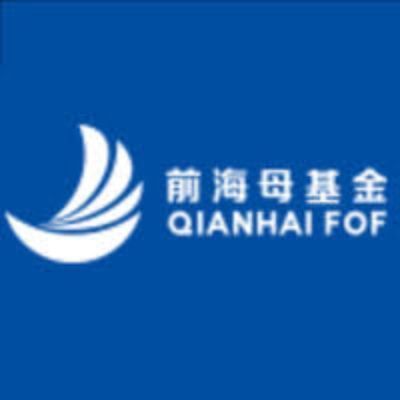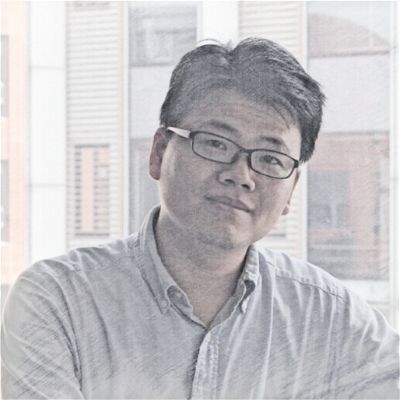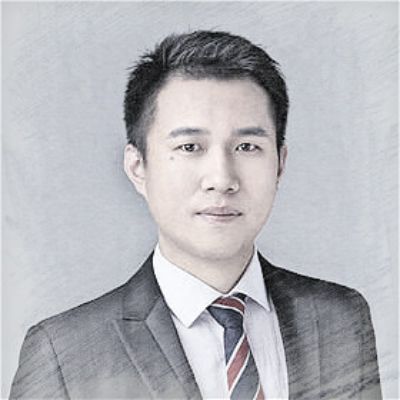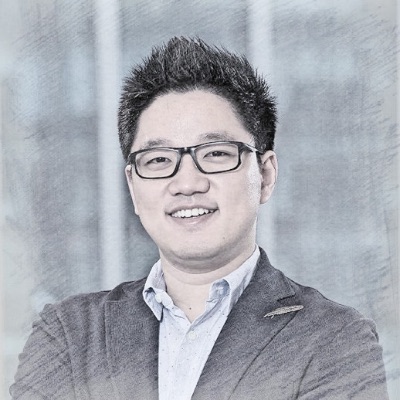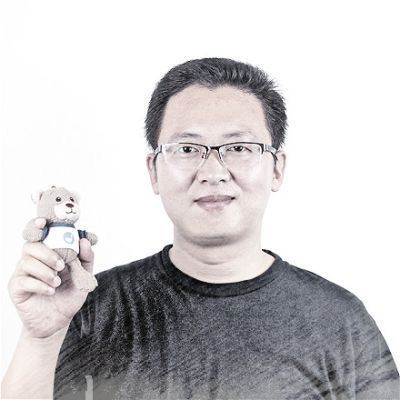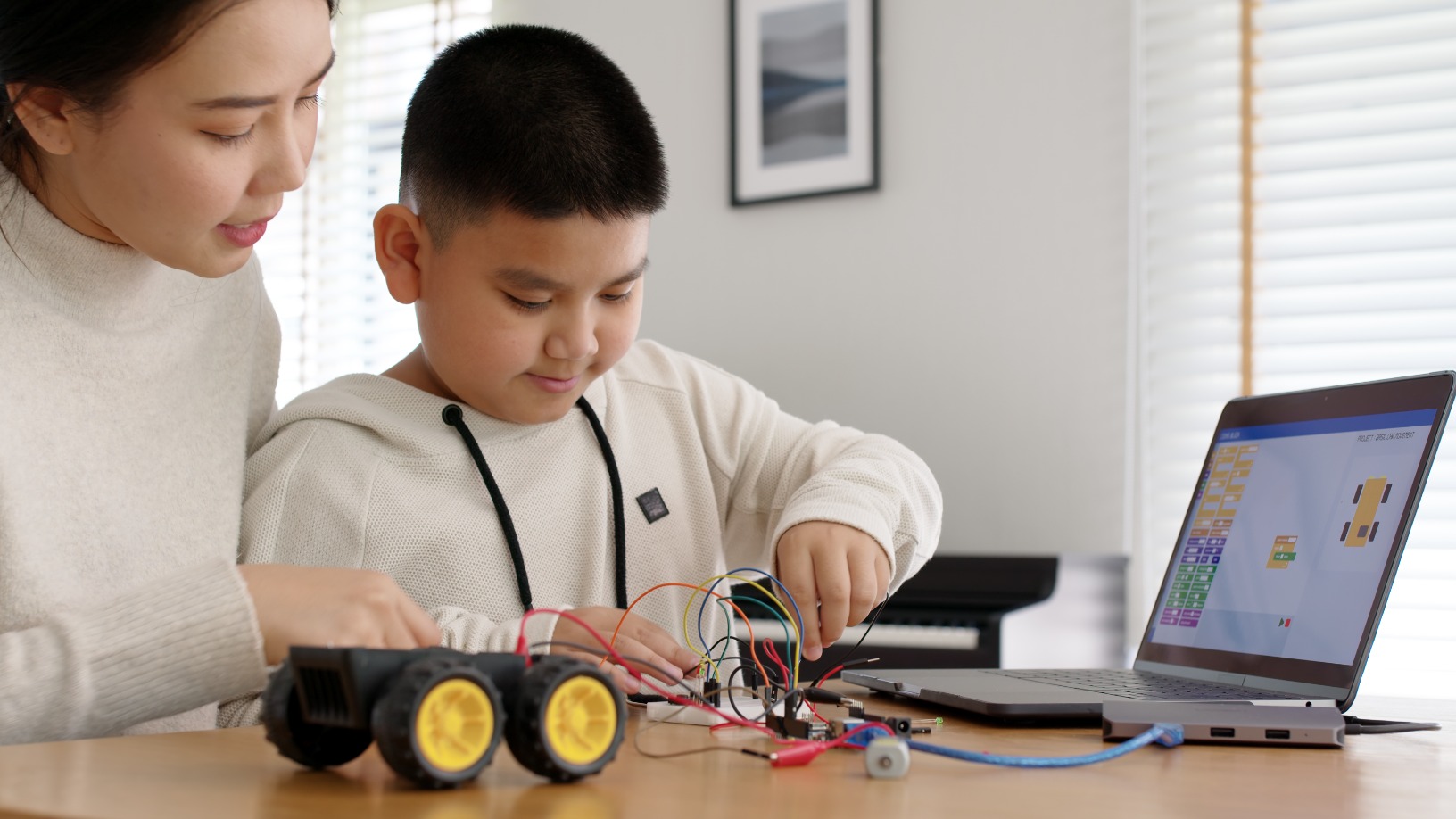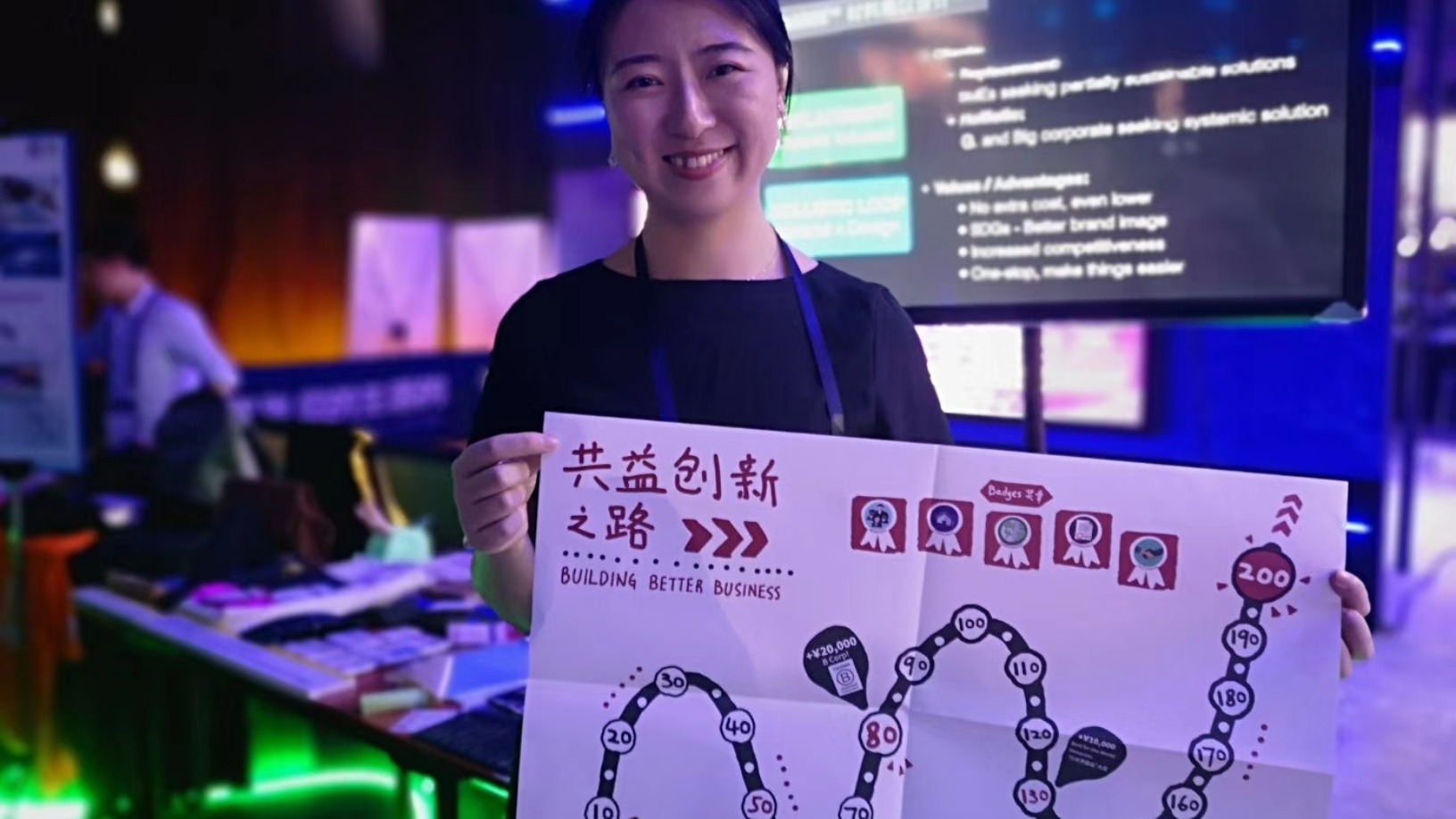China
-
DATABASE (664)
-
ARTICLES (298)
Transformed from the well-established state-owned Govtor Capital in 1992, Addor Capital is one of the most influential investment institutions in China today. It manages more than RMB 75 billion, and has set up more than 70 different investment funds, backing more than 650 startups.
Transformed from the well-established state-owned Govtor Capital in 1992, Addor Capital is one of the most influential investment institutions in China today. It manages more than RMB 75 billion, and has set up more than 70 different investment funds, backing more than 650 startups.
Tipping Point Capital was established by Huang Shengli, former managing director of China Renaissance and founder of Modian.com, a crowdfunding website for gaming projects. The core team has over 40 years of experience in the internet industry, investment banking and M&As.
Tipping Point Capital was established by Huang Shengli, former managing director of China Renaissance and founder of Modian.com, a crowdfunding website for gaming projects. The core team has over 40 years of experience in the internet industry, investment banking and M&As.
Qianhai Fund of Funds (Qianhai FoF)
Headquartered in Shenzhen, Qianhai FoF was founded in 2015 with Shenzhen Capital Group as its only institutional partner. It is China's biggest FoF, with RMB 21.5bn in capital under management. Qianhai FoF is the largest single fundraising venture capital and private equity investment fund in China.
Headquartered in Shenzhen, Qianhai FoF was founded in 2015 with Shenzhen Capital Group as its only institutional partner. It is China's biggest FoF, with RMB 21.5bn in capital under management. Qianhai FoF is the largest single fundraising venture capital and private equity investment fund in China.
Toutoushidao Capital (Datou Capital)
Toutoushidao Capital was co-founded in 2015 by Cao Guoxiong, partner of Matrix Partners China, and Wu Xiaobo, a well-known financial writer. Mainly targeting the culture and entertainment sectors, it had planned to invest RMB 2bn–RMB 3bn in the next three years.
Toutoushidao Capital was co-founded in 2015 by Cao Guoxiong, partner of Matrix Partners China, and Wu Xiaobo, a well-known financial writer. Mainly targeting the culture and entertainment sectors, it had planned to invest RMB 2bn–RMB 3bn in the next three years.
Co-founder and CEO of Tiaoguoshi
The author of the earliest book on the online-to-offline (O2O) business model in China “Theory of O2O Evolution”, and an iResearch columnist, Yu Jinhua was an independent scholar before joining fresh fruit business Tiaoguoshi in May 2014, and transforming it into a roaring O2O success. He also once served as general manager, independent brands, at beauty e-retailer Lefeng.com, and vice-president of D&S Media Group, as well as created PR firm REBRAND. Aka Banzhuandayu, his online moniker, Yu was born in the 1970s and is married to fellow Tiaoguoshi co-founder Xiao Hongtao.
The author of the earliest book on the online-to-offline (O2O) business model in China “Theory of O2O Evolution”, and an iResearch columnist, Yu Jinhua was an independent scholar before joining fresh fruit business Tiaoguoshi in May 2014, and transforming it into a roaring O2O success. He also once served as general manager, independent brands, at beauty e-retailer Lefeng.com, and vice-president of D&S Media Group, as well as created PR firm REBRAND. Aka Banzhuandayu, his online moniker, Yu was born in the 1970s and is married to fellow Tiaoguoshi co-founder Xiao Hongtao.
Co-founder and CFO of Farm Friend
With a bachelor’s degree in Management from Peking University’s Guanghua School of Management and an MBA degree of Stanford University, Hou Xiaoxiao began her investment career as an investment banker at Goldman Sachs. In 2015, when researching China’s macro economy, she spotted the huge market potential of the country’s agriculture sector, given changes in China's population policy (the one-child policy was soon ended).In 2016, she left Goldman Sachs to found Farm Friend with Yu Yang and Meng Fanqi.Hou was named to the 2017 Forbes China 30 elites under 30 list.
With a bachelor’s degree in Management from Peking University’s Guanghua School of Management and an MBA degree of Stanford University, Hou Xiaoxiao began her investment career as an investment banker at Goldman Sachs. In 2015, when researching China’s macro economy, she spotted the huge market potential of the country’s agriculture sector, given changes in China's population policy (the one-child policy was soon ended).In 2016, she left Goldman Sachs to found Farm Friend with Yu Yang and Meng Fanqi.Hou was named to the 2017 Forbes China 30 elites under 30 list.
Co-founder, CTO and COO of Pundi X
Describing himself as a cashless believer, Danny Lim Wei Xiang has a master’s in Professional Accounting from Tsinghua University in China. The law graduate is also reading a PhD in Law at his alma mater. Danny has worked as a product manager at Baidu and as a financial analyst for Lenovo, before joining games developer Wozlla as VP of Sales and Marketing in 2014. In October 2016, he joined Wozlla’s co-founder Zac Cheah to establish Pundi-Pundi. He is currently the CFO of Pundi X, a cryptocurrency spin-off of Pundi-Pundi.
Describing himself as a cashless believer, Danny Lim Wei Xiang has a master’s in Professional Accounting from Tsinghua University in China. The law graduate is also reading a PhD in Law at his alma mater. Danny has worked as a product manager at Baidu and as a financial analyst for Lenovo, before joining games developer Wozlla as VP of Sales and Marketing in 2014. In October 2016, he joined Wozlla’s co-founder Zac Cheah to establish Pundi-Pundi. He is currently the CFO of Pundi X, a cryptocurrency spin-off of Pundi-Pundi.
Co-founder of AISpeech
In 2005, Lin graduated from the University of Cambridge with a master’s degree in Engineering. Upon graduating, he worked at the British Standards Institution as Chief Representative of China. In 2007, he co-founded AISpeech with Gao Shixing and Yu Kai. He created AISpeech’s oral English teaching business unit and focused on the development of speech assessment technology. In May 2014, AISpeech spun off the oral English teaching business unit into a new company called Chivox. Lin has served as founder and CEO of Chivox ever since.
In 2005, Lin graduated from the University of Cambridge with a master’s degree in Engineering. Upon graduating, he worked at the British Standards Institution as Chief Representative of China. In 2007, he co-founded AISpeech with Gao Shixing and Yu Kai. He created AISpeech’s oral English teaching business unit and focused on the development of speech assessment technology. In May 2014, AISpeech spun off the oral English teaching business unit into a new company called Chivox. Lin has served as founder and CEO of Chivox ever since.
Founder and CEO of Sennotech
Li Qin earned a bachelor’s degree in Economics from Zhejiang University in 2006 and an M.Sc. from Utrecht University in 2007. Upon graduation, he worked briefly on B2B market analysis at the Vilnius office of Euromonitor International, an independent strategic market research provider. After returning to China in 2007, Li became head of R&D on cryogenics at Shanxi Energy Industries Group Co., Ltd. From November 2009 until early 2015, he served as a lecturer at Shanxi University of Finance and Economics. In February 2015, Li founded Sennotech in Shenzhen.
Li Qin earned a bachelor’s degree in Economics from Zhejiang University in 2006 and an M.Sc. from Utrecht University in 2007. Upon graduation, he worked briefly on B2B market analysis at the Vilnius office of Euromonitor International, an independent strategic market research provider. After returning to China in 2007, Li became head of R&D on cryogenics at Shanxi Energy Industries Group Co., Ltd. From November 2009 until early 2015, he served as a lecturer at Shanxi University of Finance and Economics. In February 2015, Li founded Sennotech in Shenzhen.
Co-founder and CTO of McFly
Liu Long graduated from Northwestern Polytechnic University based in Xi'an in 2010. The Information and Computing Science graduate went on to the Institute of Remote Sensing Applications (IRSA) at the Chinese Academy of Sciences to pursue a PhD in Microwave Remote Sensing in 2015. He stayed on at the IRSA as a research fellow with funding support from the Youth Science Fund program under the National Natural Science Foundation of China. In 2016, he co-founded agtech startup McFly with two Wuhan University alumni who are also experts in remote sensing technology.
Liu Long graduated from Northwestern Polytechnic University based in Xi'an in 2010. The Information and Computing Science graduate went on to the Institute of Remote Sensing Applications (IRSA) at the Chinese Academy of Sciences to pursue a PhD in Microwave Remote Sensing in 2015. He stayed on at the IRSA as a research fellow with funding support from the Youth Science Fund program under the National Natural Science Foundation of China. In 2016, he co-founded agtech startup McFly with two Wuhan University alumni who are also experts in remote sensing technology.
CEO and founder of M Mandarin
Dou received her master's degree in International Chinese Language Education from Shandong University in 2014. She worked in the TCSL (Teaching Chinese as a Second Language) sector for over 10 years, including as a TCSL teacher at the Confucius Institute in South Korea, as product manager at the Confucius Institute Headquarters and the Open University of China and as teacher at Shandong University. Before founding Funnybean Technology, parent company of M Mandarin, in 2016, she helped design the app Hello HSK - a platform for foreigners to learn and prepare for the HSK tests.
Dou received her master's degree in International Chinese Language Education from Shandong University in 2014. She worked in the TCSL (Teaching Chinese as a Second Language) sector for over 10 years, including as a TCSL teacher at the Confucius Institute in South Korea, as product manager at the Confucius Institute Headquarters and the Open University of China and as teacher at Shandong University. Before founding Funnybean Technology, parent company of M Mandarin, in 2016, she helped design the app Hello HSK - a platform for foreigners to learn and prepare for the HSK tests.
CEO and Founder of Tigerobo
Founder and CEO of Tigerobo, Chen Ye holds a PhD in Information Systems and Computer Science from the University of Wisconsin-Madison (2004–2007). From 2007–2015, he worked in the US as research scientist in Microsoft, eBay and Yahoo. During this period, he published over 20 papers. In 2015, he returned to China. Before founding Tigerobo in 2017, he was senior vice-president of products and marketing at Meituan-Dianping, China’s largest on-demand online service provider, heading its advertisement team for three years, raising its annual advertisement revenue from RMB 10m to RMB 4bn.
Founder and CEO of Tigerobo, Chen Ye holds a PhD in Information Systems and Computer Science from the University of Wisconsin-Madison (2004–2007). From 2007–2015, he worked in the US as research scientist in Microsoft, eBay and Yahoo. During this period, he published over 20 papers. In 2015, he returned to China. Before founding Tigerobo in 2017, he was senior vice-president of products and marketing at Meituan-Dianping, China’s largest on-demand online service provider, heading its advertisement team for three years, raising its annual advertisement revenue from RMB 10m to RMB 4bn.
Co-founder of 4D ShoeTech
Feng Zifeng read Engineering at South China Agricultural University in 2014. In 2015, he incorporated the idea of emerging 3D printing technology into his college innovation project. He and a few friends created a 3-in-1 printer with 3D printing and scanning functions.In 2016, he led the team to conduct research to apply 3D printing technology in the footwear industry. He met Zhou Zhiheng, China’s general manager for footwear brand Michael Antonio. He decided to focus on using 3D printing technology in footwear industry and became a co-founder of 4D ShoeTech.
Feng Zifeng read Engineering at South China Agricultural University in 2014. In 2015, he incorporated the idea of emerging 3D printing technology into his college innovation project. He and a few friends created a 3-in-1 printer with 3D printing and scanning functions.In 2016, he led the team to conduct research to apply 3D printing technology in the footwear industry. He met Zhou Zhiheng, China’s general manager for footwear brand Michael Antonio. He decided to focus on using 3D printing technology in footwear industry and became a co-founder of 4D ShoeTech.
CEO and Founder of Modoo
Ma Jiliang graduated from University of Wisconsin-Madison in 2013 with a degree in Industrial and System Engineering. He also has a degree in Applied Mathematics. While studying, Ma had internship roles as a lab and program manager with companies in Suzhou, China.In 2012, he started working as a program manager at AI startup Mobvoi in Beijing. After his graduation, he continued to work at Mobvoi until 2014. He founded medtech Modoo as CEO in 2015. He wanted to produce a more effective and safer fetal-monitoring device that can be used by pregnant women at home.
Ma Jiliang graduated from University of Wisconsin-Madison in 2013 with a degree in Industrial and System Engineering. He also has a degree in Applied Mathematics. While studying, Ma had internship roles as a lab and program manager with companies in Suzhou, China.In 2012, he started working as a program manager at AI startup Mobvoi in Beijing. After his graduation, he continued to work at Mobvoi until 2014. He founded medtech Modoo as CEO in 2015. He wanted to produce a more effective and safer fetal-monitoring device that can be used by pregnant women at home.
CEO and Founder of Xiaoe Tech
Bao Chunjian graduated from the University of Science and Technology of China in 2006 with a master’s degree in Computer Science. He then joined Tencent where he worked for nine years on the R&D of major data-related technologies rising to the level of a T4 expert engineer (the highest title an engineer can achieve in Tencent). In 2015, Bao Chunjian recruited a few former Tencent employees and founded a startup to help blue-collar workers find jobs but that business failed in 2016. He then started Xiaoe Tech.
Bao Chunjian graduated from the University of Science and Technology of China in 2006 with a master’s degree in Computer Science. He then joined Tencent where he worked for nine years on the R&D of major data-related technologies rising to the level of a T4 expert engineer (the highest title an engineer can achieve in Tencent). In 2015, Bao Chunjian recruited a few former Tencent employees and founded a startup to help blue-collar workers find jobs but that business failed in 2016. He then started Xiaoe Tech.
The summer LinkedIn got pummeled in China
Or how the startup Maimai cracked Chinese professional networking
Yimutian: China agriculture e-commerce's comeback kid
As the world’s most populous country faces potential food supply shortages, Yimutian, China’s No. 1 agro trading marketplace, is seeing more opportunities
Will China ride into a car-sharing future?
Chinese car-sharing startups face reckoning as more than 500 players crowd into a fast-growing, but young, market
Quant Group makes personal loans safer, easier in China
Using big data and AI, Chinese fintech startup Quant Group simplifies and accelerates loan processing, and assures monetary security for financial institutions
This startup aims to be the DocuSign of China
Having captured a third of a largely untapped domestic e-contracting market, Shangshangqian looks to gain a greater foothold at home and abroad
China edtech companies pivot to survive private tutoring crackdown
AI adaptive personalized learning is the bright star, attracting investors and corporates
Kuaipeilian wins largest seed round in China arts education sector
In the hotly contested online-to-offline piano tutoring market, will an injection of funds help Kuaipeilian trounce the competition?
Zhenmeat: Offering a modern plant-based meat alternative in China
The Chinese startup is providing a product adapted for Chinese tastes in an emerging market.
NANOxARCH: Pioneering awareness and use of sustainable materials in China
Founder Lei Yuxi reckons Covid-19 could usher China into a new era of sustainability, as her startup seeks to make sustainable materials more affordable
Plant-based meat faces backlash in China despite gaining traction
An innocuous video clip sparked debate on social media over plant-based meat, with suspicion about its nutritional value, cost-effectiveness and even the motives of foreign companies
From China, Clever Home to build “Home Depot” marts in Africa
Combining B2B2C and O2O models, Clever Home is turning its 40,000sqm trade center in Nigeria into the "Yiwu marketplace" for Chinese companies looking to set up shop in Africa
Mass production and delivery delays – common challenges facing China EV startups
As Tesla postponed delivery yet again, its Chinese rivals are scrambling too
From state to BAT, China backs startups for global AI dominance
Finance, automobile, retail and healthcare seen to lead China’s advances and gains in AI, as part of a RMB 10 trillion economy by 2030
Shiheng Tech: The brains behind Starbucks' online delivery success in China
Using real-time data analytics to optimize last-mile delivery, Shiheng Tech offers the perfect on-demand recipe for F&B businesses
Sequoia China Seed Fund: Growing an era of deep-tech startups
Managing Partner Neil Shen wants to help deep-tech and enterprise tech startups get investments more easily, across quantum computing, semiconductors, synthetic biology and more
Sorry, we couldn’t find any matches for“China”.



